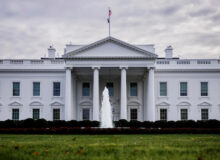On Monday, it was reported that the Grand Mufti of Egypt has issued a fatwa, or ruling, on cryptocurrency, and specifically Bitcoin.
He has banned it as being “un-Islamic.” Grand Mufti, Shawki Allam decreed that the virtual currency is “forbidden” by Sharia law “due to its direct responsibility in financial ruin for individuals.” He added that it “was not permissible as it is not considered by legitimate bodies an “acceptable interface of exchange.’”
In other words, he likens it to gambling, which is forbidden under Sharia.
Now, the old Mufti may say that Bitcoin is un-Islamic and forbidden by Sharia, but is his fatwa really based on firmly held religious belief, or does it come down to a matter of government control.

Obviously, I don’t know what is in Shawki Allam’s heart. I can only attempt to interpret what else he says about it.
Allam said his “fatwa was issued following consultations with several economy experts,” not religious leaders. He said that, “Bitcoin is not subject to the state’s supervising and financial authorities,” and added that, cryptocurrency, “impinges on the state’s authority in preserving currency exchange, as well as its necessary supervising measures on domestic and foreign financial activities.”
It sounds as if this was strictly, or mostly, a decision born of State monopolistic control of currency, and less like a religious fatwa. And it sounds not unlike what secular nations have planned for Bitcoin and others like it.
And on this, I am in full agreement with Forbes contributor Panos Mourdoukoutas. He writes that big governments the world over will eventually crush Bitcoin and others, but won’t feel the need to kill them off completely.
He writes that Bitcoin became popular with tech “innovators enchanted by the promise to “solve the ills of a global economy dominated by big governments and powerful central banks.”
The innovators were then joined by “enterprising individuals seeing big advantages in the exotic currency— a better hedge against global uncertainties than conventional hedges like gold; a convenient medium of payment worldwide; and a limited supply — 21 million.”
Then came the safe haven investors, using it as a hedge against geopolitical unrest and central bank manipulation – and finally venture capitalists who looked to make fast money. This, as one would expect, is what drove the price through the roof.
As of now, governments appear resigned to merely watching and monitoring. But as the ethereal currency gains traction with more and more individuals, it may threaten “national currencies as a medium of exchange and store of value.”
Governments’ control their people by the manipulation of food, healthcare and yes, currency.
The end of Bitcoin and other cryptocurrencies as a legitimate currency will be when it is thought to potentially overtake and replace national currencies. When governments feel they are losing control over their currency monopoly, will mark the end of Bitcoin.
Oh, it won’t go away. It will still be allowed by governments and central banks to exist, but only as a “collectible currency for tech savvy enthusiasts.”
The Grand Mufti’s decree will be like every other – when they feel threatened by a currency free from government control. The Mufti simply appears to be ahead of the curve.





















Join the conversation!
We have no tolerance for comments containing violence, racism, vulgarity, profanity, all caps, or discourteous behavior. Thank you for partnering with us to maintain a courteous and useful public environment where we can engage in reasonable discourse.